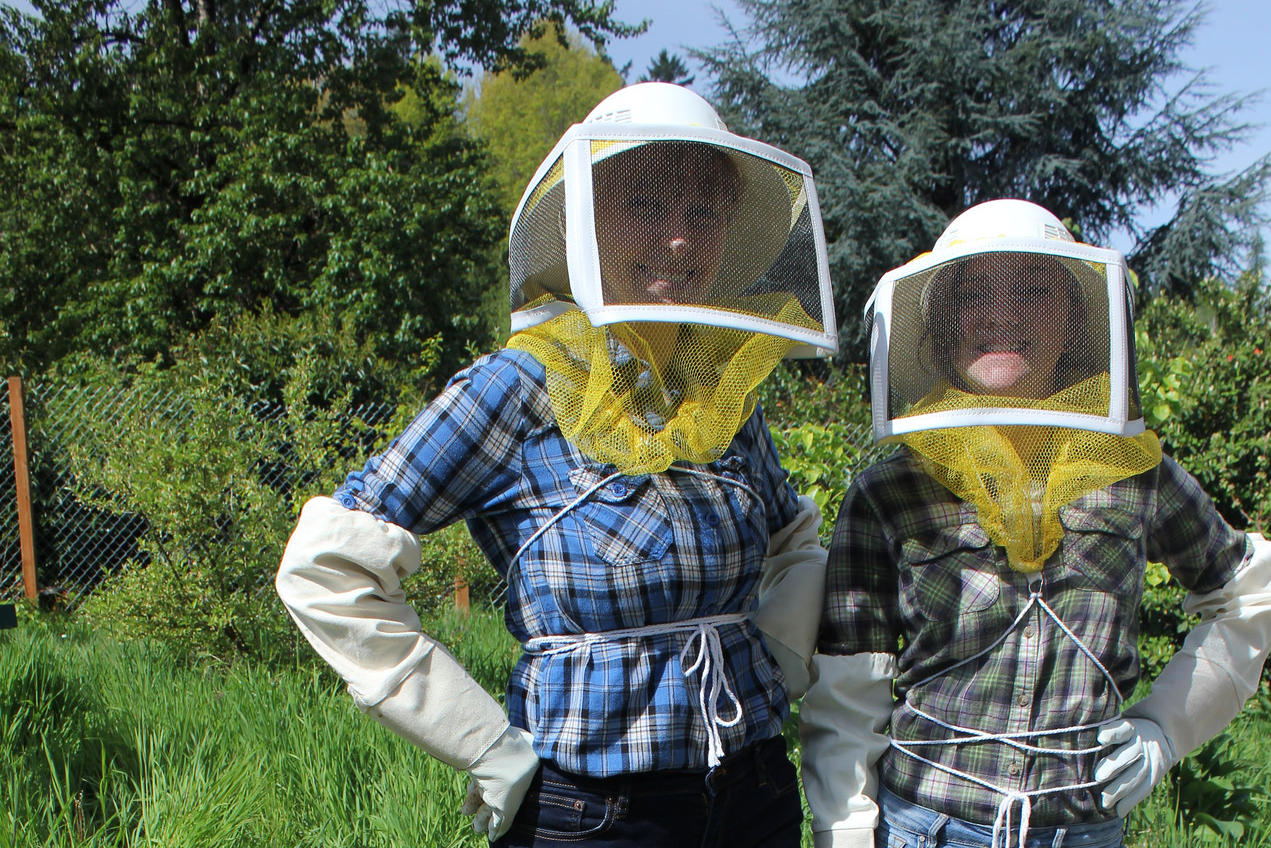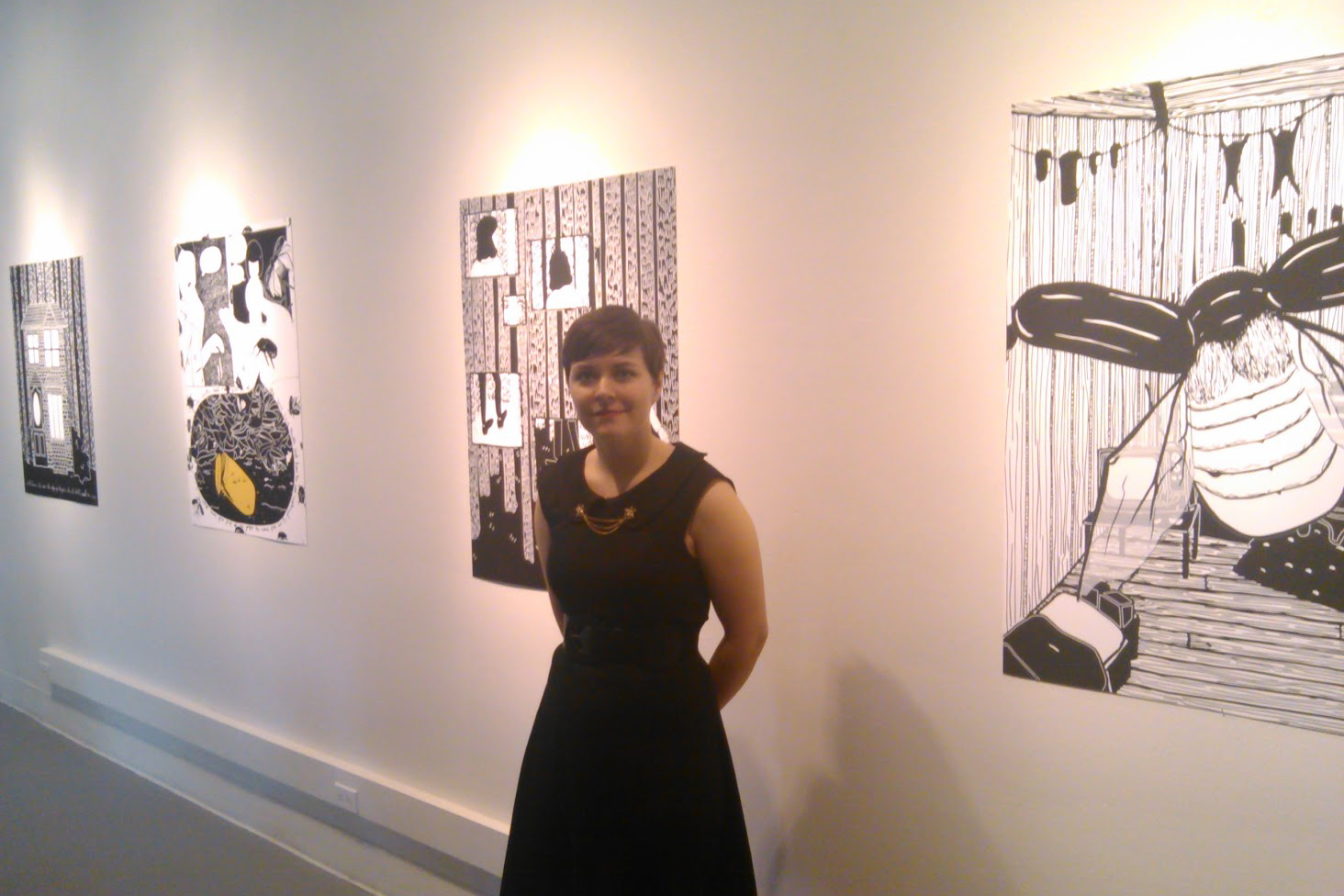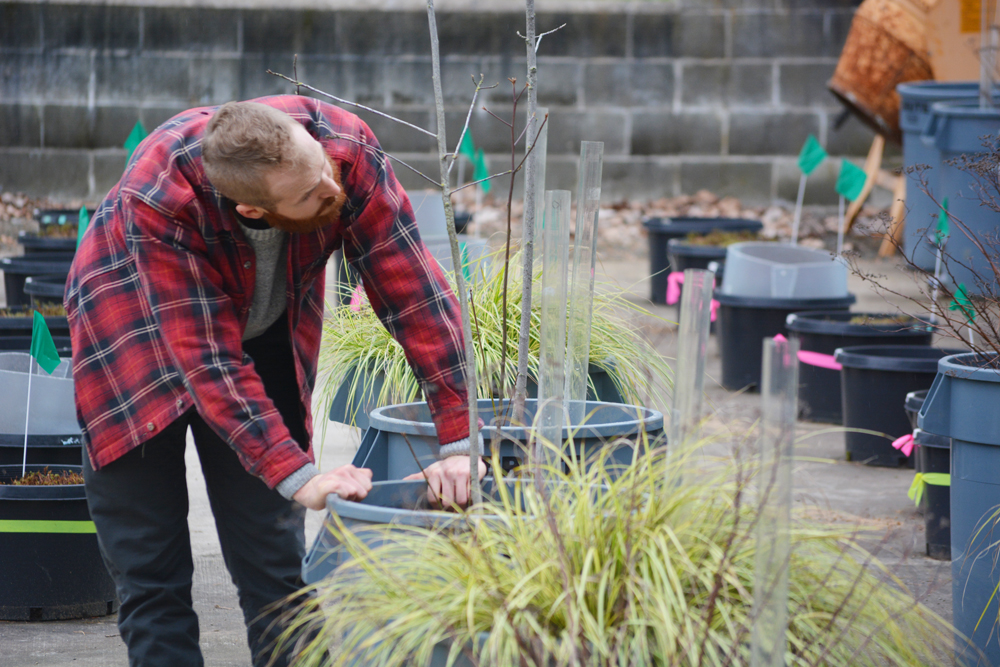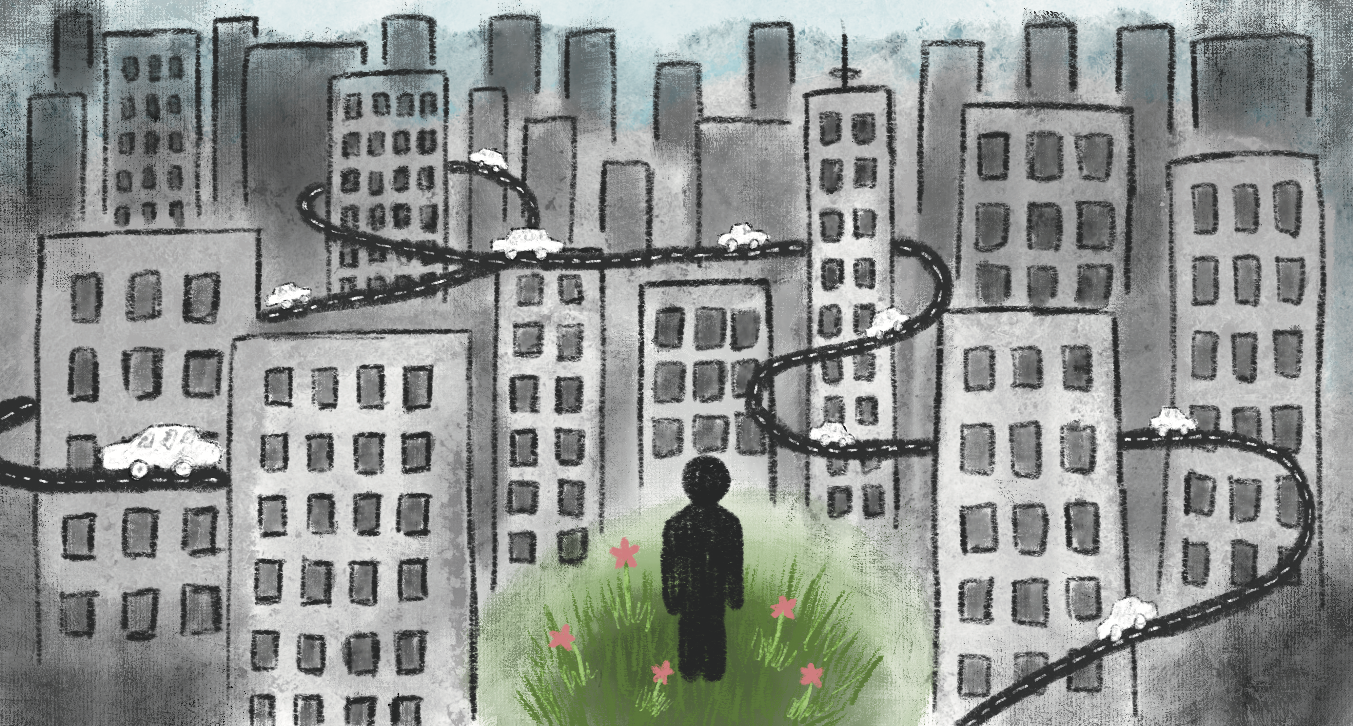This month, Portland State officially became the 10th certified Bee Campus USA institution in the country since the initiative launched last year. The new apiary, which consists of two beehives and one mason bee nest box, resides in the orchard at Southwest 12th Avenue and Montgomery Street, and was largely brought to campus through the hard work of the Student Sustainability Center and many dedicated students, faculty and staff.
Bee City USA certification is focused on creating pollinator-friendly environments. Bees are important because they are among the insects that pollinate one-third of our food. And recently, the numbers have been declining, giving rise to great concern and alarm. This is due to the fact that much of our food is now mass produced in monocultures that are heavily sprayed with pesticides—which are neurotoxins—making pollinators susceptible to disease.
Mass transportation and migration are problems too. Bee colonies are put under great stress when they are moved to other climates and forced to share space with other bees, often sharing their diseases and viruses.
Receiving certification doesn’t necessarily require having bees, but can include planting native flowers that attract local pollinators.
“That’s the really cool unique thing about Bee Campus USA,” said Genevieve Harding, a graduate assistant in PSU’s Institute of Sustainable Solutions. “Yes, we have honeybees, but we’re also trying to educate for a larger group of pollinators as well.”
Harding worked closely with Heather Spalding, the Sustainability Leadership and Outreach coordinator responsible for facilitating this process. However, the idea to bring bees to campus is largely attributed to Stefanie Steele, who is now the bee intern.
Bees have been part of Steele’s life for almost 15 years, starting when she was in middle school in Cincinnati. “It was so fascinating. It’s really relaxing and mesmerizing. They work in such great harmony,” Steele said. “I have a lot of respect for them.”
Steele has experience starting and managing several apiaries on various farms, including Zenger Farm in Southeast Portland. But after two seasons there, she was looking for bees closer to home. In her Environmental Ethics and Actions class, she wanted to address the problem of threatened pollinators and how to raise awareness.
That’s when she thought about starting an apiary at PSU and found Jacob Sherman with the ISS last spring. He had been interested in the idea for several years and was happy to have her help finally getting it off the ground.
“Having an apiary on campus is a good way for us to help educate students and community members about the plight of pollinators,” Sherman said. “It’s an opportunity to remind people that this is a natural environment and that bees are all around us and that we fundamentally depend on them as a society for our food supply.”
The process has taken a year and required approval and feedback from many departments on campus, such as the Office of Risk Management, Facilities and Property Management, and Contracts, as well as off-campus organizations including the Oregon Department of Transportation and Multnomah County. But despite the extensive approval process, those involved have had overwhelming support.
“There’s a lot of people who have come out of the woodwork as either bee enthusiasts or personal beekeepers to support this initiative,” Harding said. “That’s been really helpful.” Harding was one of the key figures managing the administrative pieces and logistics.
“It took a lot of work,” Spalding said. “We definitely had some moments where we didn’t know if this was happening. But we just kept going.”
One obstacle was the issue of liability. They had to determine who would be responsible for students and employees, identify the various risks and mitigate each one in order to ensure the apiary is a safe space.
Tim Wessels, a local beekeeping expert and one of the founders of the Portland Urban Beekeepers and the president of Bridgetown Bees, lent his expertise and experience. He said navigating the legal issues and necessary paperwork was challenging, but he was impressed by how everyone worked together to make it happen.
“It was actually one of the smoothest setups I ever had. The energy and focus was very good,” Wessels said. “There’s definitely a hassle factor and they didn’t give up.”
Together, Spalding, Harding and Steele conducted research, went to conferences and ultimately created a detailed 22 page report with a five-year plan, something that sets PSU apart from other certified campuses. “I haven’t actually seen any other schools that have a longer-term plan for their bees, so I think that could be something we really offer to other schools, especially urban schools that are big,” Spalding said.
Harding said another challenge was time. This project is a seasonal endeavor. There’s an optimal time to start a new hive, which is between April and May. It can’t be rushed and requires people committed to seeing it through. “Ultimately you want the process to be the best for the bees as well,” Harding said. “You don’t want to rush getting them to campus when they’re not going to be ready and don’t have the proper equipment or environment.”
Bringing bees to campus also opens up educational opportunities for students and the community about how to keep bees. “I’ve been wanting to get into beekeeping for a number of years now,” Harding said. “So to have that tangible, hands on opportunity to engage with it on my own campus has been really special.”
In fact, the actual task of maintaining the hives has not been as difficult as Spalding thought it would be. “It seems really intimidating, but then when you get started they’re actually pretty calm,” Spalding said. “I was more nervous than I needed to be when I first interacted with them and then I felt really safe.”
The project has garnered a lot of support and excitement not only from offices across campus and from students, but also in the Portland community. In the fall a student-led task force will manage the apiary, and Steele is even hoping to eventually get children involved, just as she did when she was a child.
“It’s good to see that people are getting pumped up about trying to better our planet,” Steele said. “It’s good to see that people are stepping outside of their comfort zone and trying something new.”
Another key to success and an important educational component has undoubtedly been Wessels’ involvement. Students were even given the chance to do the initial hive inspection alongside him. “To have that really personal, hands-on experience with a local expert is a really unique opportunity for Portland State students,” Harding said. “That was really cool and personally rewarding.”
The feeling is mutual. Wessels is thrilled to offer his guidance and is excited that students want to do something to help the bees. He’s hopeful that with their involvement and enthusiasm they can help find a solution to honeybee loss.
He was also happy to report that both of the hives are doing very well so far. He didn’t see any of the issues or problems that many colonies face. It seems like they have a strong start going into the summer and fall, and hopefully through the winter too. “Both of them are doing very well. I have high hopes for them,” Wessels said.
Spalding is also excited because this is a cause that doesn’t feel politically divisive. Food is important for all of us, and bees play a vital role in how our fruits, vegetables and nuts grow. This makes it an issue that is undeniably close to home and that anyone can do something about, like planting more pollinator-friendly plants, having gardens with a diversity of plants and not using harmful chemicals.
“When we think about huge global issues like climate change, the poster child of climate change has been polar bears, but the only place I’ve seen a polar bear is zoos and I can’t really do anything to help them,” Spalding said. “But all of us have seen bees and all of us have seen bees pollinate a flower. So I think they could become a more tangible way to connect with these issues.”
Spalding also hopes they can serve as a model for other schools. “I think if we can do it at PSU, most other institutions could do it,” Spalding said. “I’m excited to share our process and how we got to this place. And maybe the research that we did would allow other schools to feel more comfortable allowing students to work on something like this.”
Having an apiary is one of many examples of PSU’s commitment to sustainability and how student interest and excitement can bring meaningful projects to campus—and keep them going.
“I want them to realize that what they’re doing is something very special. It’s special to me and makes my heart happy to see that there’s commitment to make this work,” Wessels said. “I feel very proud to be involved and hope that I can continue to be a mentor to that group for years to come. I hope it continues on.”






